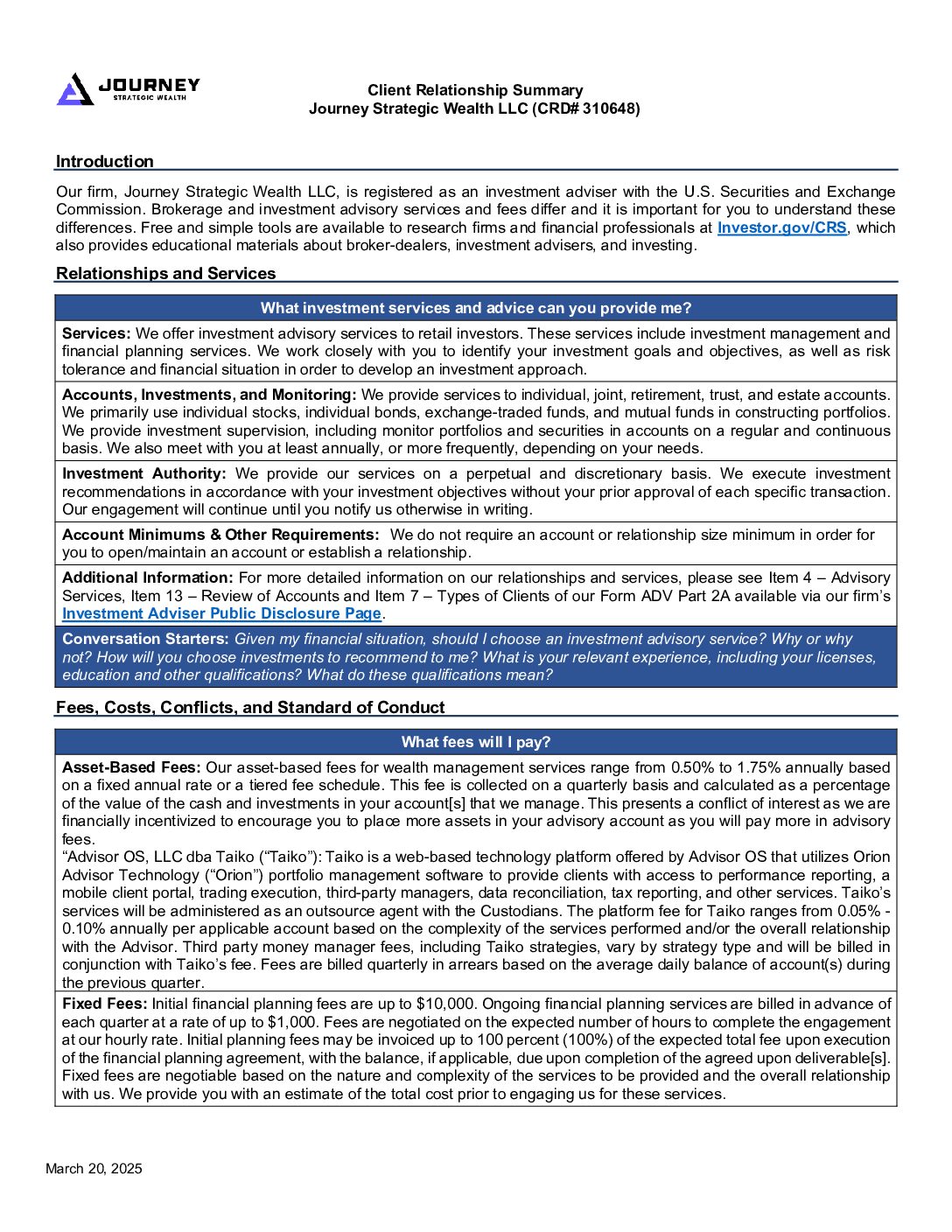The Hidden Tax Traps of Retirement Account Withdrawals and How to Avoid Them
Retirement marks a major step in one’s life. During rough days at the office or in the midst of difficult managerial decisions, retirement served as a motivational goal line for many. It offered the rich reward of more time for family, friends and cultivating new hobbies.
But for those on the verge of retirement, especially executives and business leaders used to the challenges and opportunities that come with well-defined goals and visions of success, entering this next chapter without a plan can quickly turn the promise of relaxation and rewarding family time into a hazy period of uncertainty. Chief among those concerns are taxes, penalties and mismanaged account withdrawals.
Thinking about retirement as a process, rather than a moment in time, can help you plan and prepare for the tax and investment implications of transitioning from accumulation to decumulation.
As is often the case, scheduling a meeting with a financial advisor and conducting a proper retirement analysis—sooner, rather than later—can help those on the verge of retirement to outline an efficient and tax-aware roadmap for their next chapter.
In doing so, savers approaching retirement will be able to avoid common mistakes that come with account withdrawals, as well as minimize their tax impacts.
Common Mistakes Even The Wealthy Can Make
Complexity and taxes go hand-in-hand, so it’s no surprise that costly tax mistakes can happen when savers try to draw down from their retirement accounts without the guidance of a professional. One of the most common mistakes we see is overlooking the different tax rules associated with different types of investment accounts.
Often, individuals who haven’t conducted a retirement analysis, or who haven’t consulted with a professional, think that all retirement accounts are treated equally when it comes to taxes. That’s not the case.
Making withdrawals in a tax efficient manner usually means tapping into funds that have the lowest tax implications, first. This can sometimes include taxable accounts with high tax bases and often includes Roth IRAs. Funds withdrawn from Traditional IRAs are taxed as ordinary income, not capital gains, which means higher tax bills for some. Furthermore, there are potential tax penalties to consider for withdrawing funds from retirement accounts prior to age 59 ½, with few exceptions.
Waiting too long to make withdrawals from retirement accounts can also be costly. Updated Required Minimum Distributions mandates affect the timing for withdrawals from Traditional and Roth IRAs, as well as other account types, like SEP IRAs and SIMPLE IRAs. Planning ahead and distributing assets among different account types while still maintaining an income is an excellent strategy for tax efficiency when it comes time to make these withdrawals.
The Right Plan Fosters Long-Term Prosperity
While it’s advisable to plan for retirement with plenty of time to save and strategize, even a one- to three-year plan ahead of retirement can produce major rewards. We help clients plan for when, how and what accounts they need to be utilizing when funding their retirement. We also consider philanthropic goals, because donating retirement funds can not only help make the world a better place, but it can also help our clients minimize their tax bills and maximize their hard-earned retirement savings.
Meeting with an advisor ahead of retirement also helps our clients stay organized. Often, clients come to us with accounts that can be consolidated, beneficiaries that need updating or situations where they’re overpaying on fees. In other cases, they may be allocated into investments that present too much risk or not enough reward, especially when considering recent changes in market conditions.
Above all, we’ve found that our clients are happiest and most fulfilled in their retirement when they have a plan that funds it appropriately and efficiently. If you’re wondering how to plan for a tax-efficient retirement, or just curious about the different strategies for entering the next chapter of your life, contact Journey Strategic Wealth Advisors today.
This material is distributed for informational purposes only. Investment Advisory services offered through Journey Strategic Wealth, an investment adviser registered with the U.S. Securities and Exchange Commission (“SEC”). The views expressed are for informational purposes only and do not take into account any individual’s personal, financial, or tax considerations. Opinions expressed are subject to change without notice and are not intended as investment advice. Past performance is no guarantee of future results. Please see Journey Strategic Wealth’s Form ADV Part 2A and Form CRS for additional information.




















